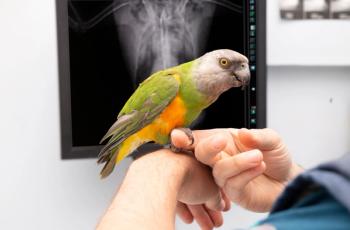
Model helps cattle breeders evaluate genetics
Miles City, Mont.-Beef cattle producers keep track of characteristics of their animals to selectively breed them and improve specific traits. But breeding for one trait can cause potential problems with others.
Miles City, Mont.-Beef cattle producers keep track of characteristics of their animals to selectively breed them and improve specific traits. But breeding for one trait can cause potential problems with others.
Agricultural Research Service (ARS) scientists and their cooperatorsare helping producers set up a program that evaluates and ranks animalsbased on multiple traits. This evaluation selects animals that have thepotential to produce the most profitable offspring, according to ARS geneticistMichael MacNeil of the agency's Fort Keogh Livestock and Range ResearchLaboratory in Miles City, Mont., and industry collaborator William Herring.
In the past, producers have had to subjectively trade off differencesamong traits to get the type of cattle they wanted. For example, they wereasked whether growth rate was more important than marbling, or whether yieldgrade was more important than weaning weight.
But MacNeil has designed software that estimates the relative economicvalue of each trait in a typical production system. This information helpsestimate an animal's overall genetic profit potential.
Since 1996, Herring has worked with the Angus Sire Alliance and CircleA Angus Ranches in Missouri to rank sires nominated by Angus breeders throughoutthe United States by their genetic profit potential, using relative economicvalues that he and MacNeil calculated. MacNeil and Herring have found thatamong the 352 sires tested on three Circle A ranch locations in Missouri,there exists a range in profitability of $41.65.
This means that if the highest- and lowest-ranking bulls were used ina production system similar to the one described in the economic simulation,a difference in profitability of more than $40 per progeny would be expected.
Based on the results of this research, MacNeil believes that wide differencesexist in the profit potential of cattle. Producers should be encouragedto use a more comprehensive and objective approach than single-trait selectionin choosing how to breed their animals. Bulls with a desirable balance oftraits may, in the end, be much more profitable than those that excel injust one or two traits.
Newsletter
From exam room tips to practice management insights, get trusted veterinary news delivered straight to your inbox—subscribe to dvm360.




